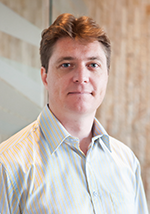

I believe one of the greatest gifts the scientific and engineering disciplines have given us is abstraction. Before you start thinking about abstract art (you are allowed to, just not right now), I’m referring to the act of thinking in terms of ideas, rather than events or tangible ‘things’. In fact, I would go so far as to say it’s one of the greatest gifts of mankind, full-stop.
Kids abstract all the time, often without even being taught to. If you want proof, just give a child a smartphone or tablet PC and watch them play a game on it. Getting them to stop, now that’s a problem. Abstraction is so easy even presidents can do it – are required to do it in order to do their job effectively, I would argue. How else could they be expected to weigh the lives of people in danger of dying from a pandemic against the necessity of keeping the economy churning? Or the needs of a large, but largely low-skilled and unemployed, workforce against the prerogative of technological progress through automation, digitalisation, et al? And all while dealing with pesky questions over a silly little $4 million robbery on their farm.
An example most readers will be familiar with is the 7-layered ISO-OSI model for electronic communications. When you’re working at Layer 7 (as most of us do), you really don’t need to know the physical mechanism by which a bit (which is, itself, abstract) changes state between 0 and 1, all the way down at Layer 1. Unless you’re designing down to the circuit board/IC/firmware level or troubleshooting a particularly tricky problem, you shouldn’t need to go further down than Layer 4, and even then there are test instruments that can do most of the work for you.
Without alluding directly to this broader theme of the abstract, some points are raised which touch upon it in this issue’s articles written by our contributing editors, Gavin Halse and Lance Turner. In his article (http://www.instrumentation.co.za/17336r), Gavin makes the valid point that instrument and automation engineers are trained to be comfortable with physical systems, but not so much with systems involving people. Although it makes sense to abstract people out of our thinking because they’re so unpredictable and unreliable (compared to a machine), one does so at their peril, or rather at the peril of the people whose safety is jeopardised as a result.
Lance, (http://www.instrumentation.co.za/17326r), explores the convergence (collision might be a more apt description) of the IT and OT worlds. Despite these two fields working at the same level of abstraction and using mostly the same skillsets, their objectives are divergent. The result is that what one might think would be complementary functions are in conflict with one another – it turns out that, besides being unpredictable and unreliable, people also have ‘feelings’ and don’t like to share.
The automation industry is exceptionally good at most things, but not so good at dealing with disruptive change – after all, it is called disruptive for a reason. The aforementioned articles are just two examples of how such a rapid rate of technological advancement is testing the limits of our resilience and adaptability. So, being the innovators that we are, the next logical step is to create technologies that can do the resilience and adaptability for us.
Enter artificial intelligence, the next frontier in our journey toward ‘cognitive manufacturing’. In a recent white paper, ResearchGate identified the most critical areas where AI can enhance manufacturing processes, as well as eight challenges that must be overcome to significantly increase the long-term resilience of manufacturing companies: complementing employees’ skills in manufacturing processes; increasing corporate agility and reducing procurement bottlenecks; reducing time to market; strengthening factory resilience and robustness; reducing complexity in data-based decision-making; intelligent risk assessment and mitigation; reducing cybersecurity risks; addressing ethics when using AI in manufacturing; and AI in product design.
In all honesty, I’m torn between wonder and terror at what such an AI-powered future might hold. Wonder, because just imagine what we can achieve if we ever manage to make machines that can think like us; and terror, because just imagine the worst-case scenario if we ever manage to make machines that can think like us.
| Tel: | +27 31 764 0593 |
| Email: | [email protected] |
| www: | www.technews.co.za |
| Articles: | More information and articles about Technews Publishing (SA Instrumentation & Control) |
© Technews Publishing (Pty) Ltd | All Rights Reserved